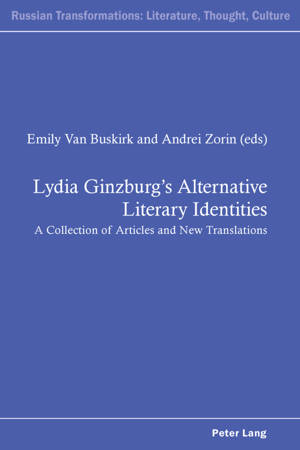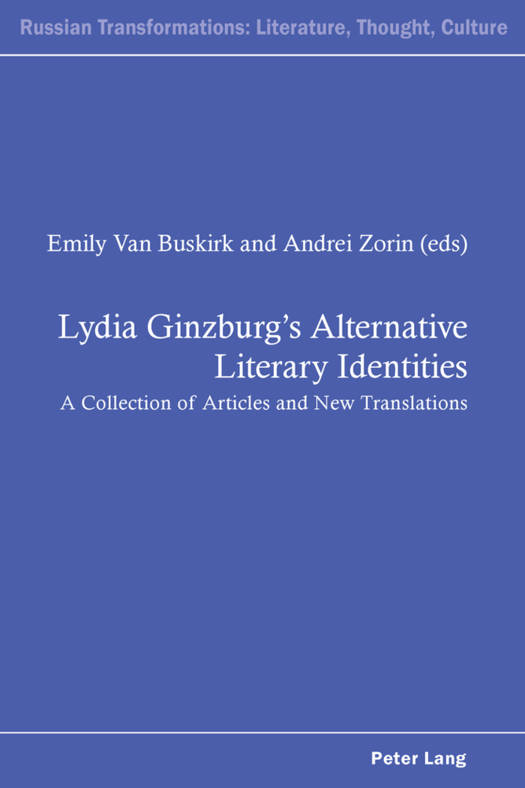
Bedankt voor het vertrouwen het afgelopen jaar! Om jou te bedanken bieden we GRATIS verzending (in België) aan op alles gedurende de hele maand januari.
- Afhalen na 1 uur in een winkel met voorraad
- In januari gratis thuislevering in België
- Ruim aanbod met 7 miljoen producten
Bedankt voor het vertrouwen het afgelopen jaar! Om jou te bedanken bieden we GRATIS verzending (in België) aan op alles gedurende de hele maand januari.
- Afhalen na 1 uur in een winkel met voorraad
- In januari gratis thuislevering in België
- Ruim aanbod met 7 miljoen producten
Zoeken
Lydia Ginzburg's Alternative Literary Identities; A Collection of Articles and New Translations
A Collection of Articles and New Translations
€ 200,95
+ 401 punten
Omschrijving
Known in her lifetime primarily as a literary scholar, Lydia Ginzburg (1902-1990) has become celebrated for a body of writing at the intersections of literature, history, psychology, and sociology. In highly original prose, she acted as a chronicler of the Soviet intelligentsia, a philosopher-cum-ethnographer of the Leningrad Blockade, and an author of powerful non-fictional narratives. She was a humanistic thinker with deep insights into psychological and moral dimensions of life and death in difficult historical circumstances.
The first part of this book is a collection of essays by a distinguished set of scholars, shedding new light on Ginzburg's contributions to Russian literature and literary studies, life-writing, subjectivity, ethics, the history of the novel, and trauma studies. The second part is comprised of six works by Ginzburg that are being published for the first time in English translation. They represent a cross-section of her great themes, including Proustian notions of memory and place, the meaning of love and rejection, literary politics, ethnic and sexual identities, and the connections between personal biography and Soviet history. Both parts of the volume aim to explore, and make accessible to new readers, the gripping contribution to a broad set of disciplines by a profoundly intelligent writer and observer of her times.
The first part of this book is a collection of essays by a distinguished set of scholars, shedding new light on Ginzburg's contributions to Russian literature and literary studies, life-writing, subjectivity, ethics, the history of the novel, and trauma studies. The second part is comprised of six works by Ginzburg that are being published for the first time in English translation. They represent a cross-section of her great themes, including Proustian notions of memory and place, the meaning of love and rejection, literary politics, ethnic and sexual identities, and the connections between personal biography and Soviet history. Both parts of the volume aim to explore, and make accessible to new readers, the gripping contribution to a broad set of disciplines by a profoundly intelligent writer and observer of her times.
Specificaties
Betrokkenen
- Uitgeverij:
Inhoud
- Aantal bladzijden:
- 442
- Taal:
- Engels
- Reeks:
- Reeksnummer:
- nr. 3
Eigenschappen
- Productcode (EAN):
- 9783039113507
- Verschijningsdatum:
- 18/07/2012
- Uitvoering:
- Paperback
- Formaat:
- Trade paperback (VS)
- Afmetingen:
- 152 mm x 229 mm
- Gewicht:
- 607 g

Alleen bij Standaard Boekhandel
+ 401 punten op je klantenkaart van Standaard Boekhandel
Beoordelingen
We publiceren alleen reviews die voldoen aan de voorwaarden voor reviews. Bekijk onze voorwaarden voor reviews.








